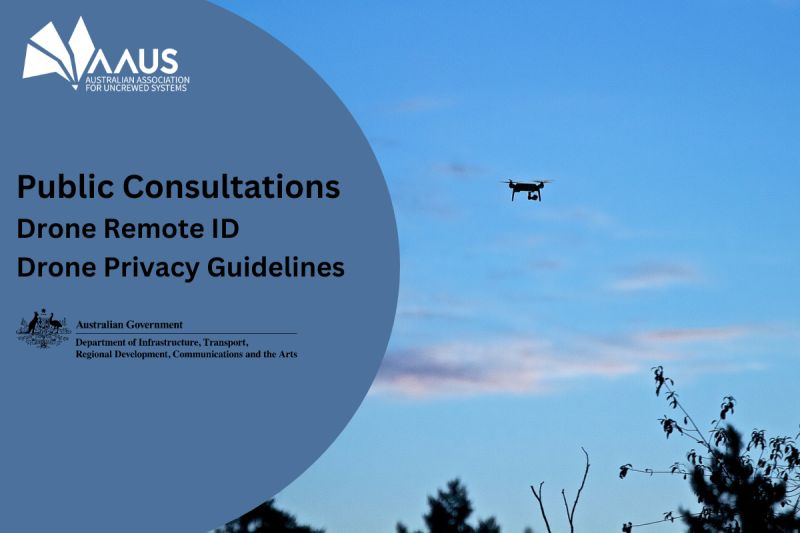Australia’s Department of Infrastructure, Transport, Regional Development, Communications and the Arts has published two surveys to collect public feedback on Remote Drone Identification and Drone Privacy Guidelines. The Australian Association for Uncrewed Systems (AAUS) is building an advocacy position in relation to these areas in order to present a collective response to the surveys.
AAUS survey on Drone Remote ID: https://www.surveymonkey.com/r/LGTFWJ3
AAUS survey on Drone Privacy Guidelines: https://www.surveymonkey.com/r/SY2KPZK
Respondents can also reply directly to the government surveys here
The National Emerging Aviation Technologies Consultative Committee (the Committee) is the principal forum through which the Department engages with the industry. The Committee meets regularly to ensure industry views are incorporated into future initiatives.
Deadlines: Friday 28 July 2023 and Friday 11th August 2023
Remote ID
Remote Identification (Remote ID or RID) is a technology incorporated into drones to provide information about where they are flying and who is flying them.
Better information about where drones are operating will enable the continued safe and efficient operation of drones.
As technology evolves, it will be increasingly important to manage our airspace to accommodate more aircraft and users.
Remote ID can also assist identify drone operators and make sure they remain accountable.
Our paper is a starting point for ongoing discussion and collaboration between government, industry and the broader community across 3 broad themes:
- data and access
- technology
- usage.
It aims to:
- identify opportunities and risks associated with drone technology
- outline some of the current approaches for managing issues
- propose an approach to policy development.
Deadline: Friday 28 July 2023
Privacy Guidelines
When flying drones, it is important to respect privacy and we want to make it as easy as possible for everyone to understand safe and considerate drone use that is in line with community expectations, whether flying recreationally or for business.
The Privacy Guidelines for drone use bring together information about relevant legislation to provide drone users with a set of easy to follow measures to enable them to operate drones in line with the community’s reasonable expectations of privacy. In some cases, existing privacy laws refer to drone use, but others are more general. The Guidelines aim to assist drone operators to understand existing and best practice privacy obligations when using drones. The intention is not to impose any additional obligations.
The draft Guidelines include 6 Drone Privacy Principles (DPPs), underpinned by existing Commonwealth, state and territory provisions relating to privacy and surveillance devices. The DPPs include guidance on how they apply to commercial and recreational drone operators.
The draft Guidelines also aim to be a resource to educate and inform the community on what is and isn’t privacy considerate drone use and the steps they can take to find out more, or report their concerns.
The draft Guidelines have been developed through targeted engagement and consultation with state and territory governments and industry. The Guidelines and DPPs are not meant to be exhaustive, but a way to inform drone users and the community of best practice privacy considerate drone use, within existing legal settings.
Deadline: Friday 11 August 2023
For more information visit:




